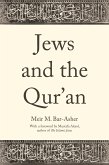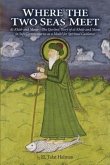Where Can Jews Be Safe? 7 Fatal Failures of Zionism "Where Can Jews Be Safe?" by Mohamed Moussa Ghounem is a profound examination of Zionism through a unique lens, exploring the ideology's failures as seven deadly sins. A searing critique that does not shy away from difficult questions, the book delves into the deeply rooted complexities of Zionism and its consequences for Jews, Muslims, and the broader region. This book aims to unravel the myth of safety promised by Zionism, exploring its misguided attempts to secure a homeland through acts of exclusion, aggression, and expansionism. Set against the backdrop of historical and contemporary events, the book is a journey that begins with hope but reveals a trajectory of unintended suffering and insecurity. Drawing parallels between Zionism and other revolutionary ideologies, Ghounem poignantly illustrates how secular attempts to overcome centuries of persecution have led to new cycles of fear and conflict. Each chapter takes readers through a different "sin"-sloth, envy, pride, greed, wrath, lust, and gluttony-elaborating how these failings have transformed the Zionist vision into an ideology that compromises Jewish safety and strains relations with their Arab neighbors. The book does more than criticize; it offers a path toward understanding, empathy, and reconciliation. By comparing Zionism to Japan's post-war pacifist transformation, Ghounem raises a challenging yet hopeful perspective: that Jewish and Arab coexistence, grounded in mutual respect and a shared heritage, is not just possible but necessary for true peace and security. The author contrasts Japan's healing path after the devastation of World War II with Zionism's persistence in militarization, offering a fresh way to envision how both Jews and Palestinians could seek common ground. Written with the intent of contributing to global discourse, the book challenges readers to reconsider what it means to truly feel safe. Ghounem encourages a shift from ideologies of power and territorial conquest to a paradigm of humility, compassion, and shared humanity. The narrative is buttressed with historical references, Biblical insights, and a powerful juxtaposition of the past 1,400 years-when Muslims provided refuge for Jews during the Crusades-with the post-1948 narrative of conflict and propaganda. The historical gratitude Jews once expressed toward Muslims for protection contrasts sharply with the contemporary demonization of Muslims. The book calls for a new understanding, not one based on triumph or resentment, but rooted in empathy for all those who have suffered. "Where Can Jews Be Safe?" goes beyond history and politics; it invites readers to engage in moral reflection, urging Jews, Christians, Muslims, and all who value justice to look beyond the divisive narratives that have long perpetuated violence. Instead of viewing the world through the prism of tribal entitlements and vengeance, Ghounem proposes a world guided by the spirit of shared heritage and the pursuit of peace. The conclusion-aptly titled "The Burning Bushidō"-presents a poignant call to abandon pride, envy, and wrath, embracing instead a path toward healing and brotherhood among the descendants of Abraham. "Where Can Jews Be Safe?" seeks not only to inform but to transform. This work is a brave call for action, an invitation to choose empathy over apathy, to see beyond borders and ideologies, and to envision a new future where the descendants of Isaac and Ishmael live not as adversaries but as part of a shared, divine family.
Hinweis: Dieser Artikel kann nur an eine deutsche Lieferadresse ausgeliefert werden.
Hinweis: Dieser Artikel kann nur an eine deutsche Lieferadresse ausgeliefert werden.








